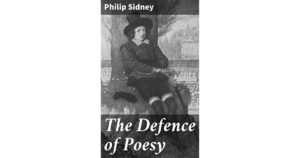Sir Philip Sidney and An Apology for Poetry
Sir Philip Sidney (1554-1586) was an English poet, courtier, and literary critic who made significant contributions to literary criticism. His most notable work, “An Apology for Poetry” (also known as “The Defence of Poesy”), is considered one of the foundational texts of English literary criticism.
Table of Contents

Sir Philip Sidney’s Contributions to Literary Criticism:
- Defence of Poetry: Sidney argued that poetry is a superior form of literature, capable of conveying moral truths and exploring the human condition.
- Concept of Mimesis: He introduced the concept of mimesis, or imitation, which posits that literature should imitate life and nature.
- Idea of the Poet as Maker: Sidney saw the poet as a creator, or “maker,” who brings new ideas and worlds into being through their art.
- Importance of Imagination: He emphasized the importance of imagination in literary creation, arguing that it allows poets to tap into the universal and the divine.
- Classification of Literature: Sidney developed a classification system for literature, dividing it into three categories: narrative, lyric, and dramatic.
- Influence on Later Critics: Sidney’s work influenced later literary critics, including John Dryden, Alexander Pope, and Samuel Johnson.
Overall, Sir Philip Sidney’s contributions to literary criticism helped shape the way we think about literature and its role in society. His ideas about the power of poetry, the importance of imagination, and the role of the poet as creator continue to influence literary theory and criticism to this day.

Works of Sir Philip Sidney:
- Astrophel and Stella (sonnet sequence, 1591)
- The Defence of Poesy (literary criticism, 1595)
- The Countess of Pembroke’s Arcadia (prose romance, 1590)
- The Lady of May (masque, 1578)
- The Psalms of David (translation, 1599)
Astrophel and Stella is a sonnet sequence that explores the themes of love, beauty, and mortality. It is considered one of the greatest sonnet sequences in the English language.
The Defence of Poesy is a literary criticism that argues for the importance of poetry and its ability to convey moral truths.
The Countess of Pembroke’s Arcadia is a prose romance that tells the story of two cousins, Pyrocles and Musidorus, and their adventures in the fictional land of Arcadia.
The Lady of May is a masque that was performed at court in 1578. It tells the story of a group of shepherds who compete for the hand of a lady.
The Psalms of David is a translation of the Psalms of David, which Sidney worked on with his sister, Mary Sidney.
Sidney’s works showcase his mastery of various literary forms and his ability to explore complex themes and ideas through his writing.

Important points to remember from “The Defence of Poesy” by Sir Philip Sidney:
- Definition of Poetry: Sidney defines poetry as “an art of imitation, for so Aristotle termeth it in his word mimesis”.
- Purpose of Poetry: He argues that the purpose of poetry is to delight and instruct, and that it has the power to move and persuade.
- Imitation vs. Reality: Sidney discusses the concept of mimesis, arguing that poetry is an imitation of reality, but also has the power to create new worlds.
- Poetry as a Superior Form: He argues that poetry is a superior form of literature, capable of conveying moral truths and exploring the human condition.
- The Poet as Maker: Sidney sees the poet as a creator, or “maker”, who brings new ideas and worlds into being through their art.
- Importance of Imagination: He emphasizes the importance of imagination in literary creation, arguing that it allows poets to tap into the universal and the divine.
- Critique of Contemporary Literature: Sidney critiques the literature of his time, arguing that it has become too focused on mere entertainment rather than moral instruction.
- The Role of the Poet: He argues that the poet has a responsibility to use their art to promote virtue and moral truth.
- The Power of Poetry: Sidney argues that poetry has the power to inspire, to educate, and to bring people closer to the divine.
- The Enduring Nature of Poetry: He argues that poetry is an enduring form of literature, capable of transcending time and circumstance.

These points summarize the main arguments and ideas presented in “The Defence of Poesy”, and highlight Sidney’s contributions to literary theory and criticism.
Read and learn more: Dante and His Famous Work The Divine Comedy







One thought on “Sir Philip Sidney and An Apology for Poetry”